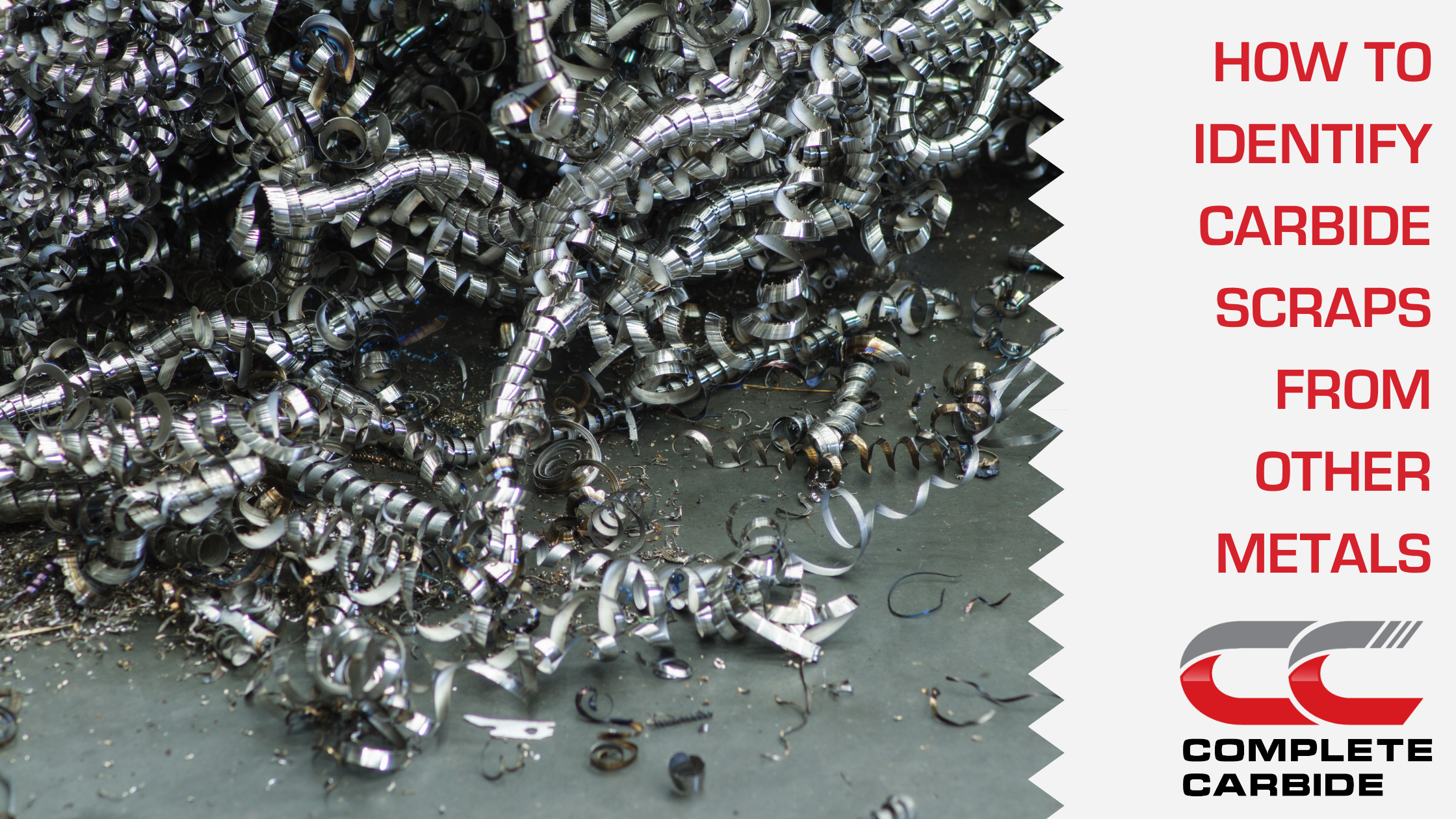
How to Identify Carbide Scraps From Other Metals
If you own a machine shop or are otherwise in possession of a large amount of metal shavings or scraps, you’re probably already aware that you can make a decent amount of money by selling them to a metal recycler in your area. But if you’re simply selling all your mixed scraps in bulk, you could be leaving a lot of money on the table.
HOW MUCH ARE CARBIDE SCRAPS WORTH?
When it comes to today’s scrap prices, not all metals are created equal. For instance, basic steel will only fetch you about $0.13 per pound. Even copper, which has made national headlines for its resale value, will only net you around $3.50 a pound. Tungsten carbide, on the other hand, is worth its weight in gold, currently sitting at $5.61 for every pound. That’s over 43 times the value of steel!
That number is on the rise too, as the price of carbide scrap continues to fluctuate due to the increasing rarity of tungsten and a number of other factors. It stands to reason then, that if you’re using any amount of carbide at all, it pays to separate those scraps from the rest of the metals before recycling.
So, the question is no longer should you separate your metal scraps, but rather, how?
HOW TO IDENTIFY YOUR CARBIDE SCRAPS FROM OTHER METALS
Unless you have a rare gift for spotting visual differences, carbide can be a difficult metal to identify based on sight alone. That’s because carbide is primarily made from tungsten, which is a very hard, dense material with a dull, greyish color. Unfortunately, so are many other metals.
While you can easily rule out copper, brass, and a number of other metals, you’ll probably still be left with a lot of grey scraps that may or may not be carbide. So, how can you tell the difference?
Here are five tests you can perform to ensure the metal scraps you have are truly carbide.
1. IS IT MAGNETIC?
If you have a spare magnet handy, this is an easy first test to conduct. While iron, steel, cobalt, nickel, and certain stainless steels are all very susceptible to magnetism, carbide is not. That’s because tungsten, in its natural form, is only weakly magnetic, or paramagnetic as it’s known in the scientific world.
The catch here is that some binding materials in carbide are more magnetic than others. So depending on how it was made, some carbides will be slightly more magnetic than others. Just know that if the metal scrap sticks strongly to the magnet, it’s unlikely to be carbide.
2. IS IT UNUSUALLY HEAVY?
At 19.35 g/cm³, tungsten is one of the top five densest metals in the world. In fact, it’s denser than gold, uranium, and mercury. This makes it rather easy to identify by its weight. Even lead, which is known for being a heavy metal, is significantly lighter than pure tungsten.
If you have a good industrial scale in your shop, you can use it to easily compare the different weights of your scraps. While two tablespoons of steel weigh around 0.5 pounds, an equal amount of tungsten carbide clocks in at over 1.25 pounds!
3. DOES IT SCRATCH EASILY?
According to Moh’s scale of mineral hardness, tungsten carbide has a hardness rating of 9, making it one of the hardest metals in the world. Compare that to silver (2.5-3), nickel (4), steel (4-4.5), cobalt (5.5), and hardened steel (8).
For this test, all you need to do is grab a piece of known tungsten carbide and attempt to scratch the piece of scrap. If it scratches easily, it’s probably one of the softer metals listed above. If you see little to no markings, it’s likely carbide.
4. IS IT RUSTY?
This is an easy one. While steel and many other non-coated metals will rust over time, carbide will not. So if you see any amount of rust on your scraps, you know it’s not carbide. Of course, nickel, stainless steel, and other corrosion-resistant metals will also avoid oxidation, so this should never be the only test you conduct.
5. WHAT COLOR DOES IT SPARK?
Spark testing is a great method for determining the general classification of your metal scraps. When put to a high-speed grinding wheel, carbide typically emits short, dark-red sparks. Compare that to mild steel which emits sparks of bright white, and you can easily rule out many common ferrous metals.
ARE YOU LOOKING TO SELL YOUR SCRAP CARBIDE?
If you have carbide scraps or shavings to sell, we will happily take them off your hands. Contact us today to discuss a quote.
Now that you’ve sold your scraps and turned a hefty profit, it’s time to purchase more stock for your shop. If you want the highest quality tungsten carbide at competitive prices, look no further than Complete Carbide. Check out our full inventory of carbide rods and STB strips today.
